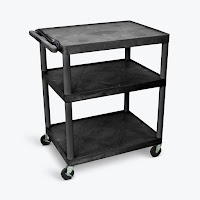Buying Guide: Scientific Calculators
The quality of a scientific calculator can make or break exams and construction projects. Poorly made calculators can give off inaccurate results and break after a few uses, while others might be good enough to last but not have enough functionality for the job.
Sure, it’s easy to find a scientific calculator in physical and online stores, but buying the right one can be overwhelming—what with the multiple options available. After all, a high-quality scientific calculator can be incredibly useful from college exams to professional applications.
So we made this guide to help you learn about the right features to look for when buying a calculator. You can check out our reviews of the best scientific calculators for engineering students and professionals or read on and find out how to choose the best one.
But if you’re looking for a calculator that can perform advanced arithmetic and scientific calculations, then you have to get a scientific calculator with the right functions, including trigonometry, exponential functions, logarithms, calculus, and more. Some scientific calculators offer over 100 functions, while others feature more than 500 functions.
It’s worth noting that exams such as the fundamentals of engineering (FE) exam and land surveying tests approve only a few construction calculator models, which are all non-programmable. The National Council of Examiners for Engineering and Surveying (NCEES) has this policy in place to uphold the integrity of exams, so you might want to factor that in as well.
If you need to plot coordinates and graphs, solve simultaneous equations, and calculate with variables, a scientific calculator with a graphing function is an ideal choice. It costs a bit more than other scientific calculators, but its high-end functionality makes it worth the investment.
Most scientific calculators come with LEDs, which allow you to easily view your entries under any light condition. Some brands even offer calculators with a natural textbook display, so users can view multiple calculations at a time as if they’re printed on a textbook.
You might also want to find a scientific calculator that includes a hard case. That way, you can guarantee that it’s protected against bumps and scratches.
Some scientific calculator models even have a few extra bells and whistles, including a QR code generator, which lets you easily share data with students or co-workers.
Ready to buy a scientific calculator? Explore our collection of scientific calculators for students and calculators for construction or read our article about the best scientific calculators for engineers.
Sure, it’s easy to find a scientific calculator in physical and online stores, but buying the right one can be overwhelming—what with the multiple options available. After all, a high-quality scientific calculator can be incredibly useful from college exams to professional applications.
So we made this guide to help you learn about the right features to look for when buying a calculator. You can check out our reviews of the best scientific calculators for engineering students and professionals or read on and find out how to choose the best one.
Functions
Before you buy a scientific calculator online, you have to ask yourself how you’ll use it. Do you need one for basic math functions, like addition, subtraction, multiplication, and division? Then a regular desktop calculator will be more than sufficient.But if you’re looking for a calculator that can perform advanced arithmetic and scientific calculations, then you have to get a scientific calculator with the right functions, including trigonometry, exponential functions, logarithms, calculus, and more. Some scientific calculators offer over 100 functions, while others feature more than 500 functions.
It’s worth noting that exams such as the fundamentals of engineering (FE) exam and land surveying tests approve only a few construction calculator models, which are all non-programmable. The National Council of Examiners for Engineering and Surveying (NCEES) has this policy in place to uphold the integrity of exams, so you might want to factor that in as well.
If you need to plot coordinates and graphs, solve simultaneous equations, and calculate with variables, a scientific calculator with a graphing function is an ideal choice. It costs a bit more than other scientific calculators, but its high-end functionality makes it worth the investment.
Display
Traditional scientific calculators used a single-line display, which shows less than 10 digits. Today, scientific calculators offer two-line displays or more, making it easy to scroll through long equations and entries.Most scientific calculators come with LEDs, which allow you to easily view your entries under any light condition. Some brands even offer calculators with a natural textbook display, so users can view multiple calculations at a time as if they’re printed on a textbook.
Other Features
Apart from all the features mentioned above, there are a few other factors you might want to consider before buying a scientific calculator. One of these is its power source. Check what kind of batteries a calculator has, so you’ll have an idea of how long it can run before its batteries die. Or better yet, choose a calculator that’s both battery-powered and solar-powered, which comes in pretty handy during exams or on-site calculations.You might also want to find a scientific calculator that includes a hard case. That way, you can guarantee that it’s protected against bumps and scratches.
Some scientific calculator models even have a few extra bells and whistles, including a QR code generator, which lets you easily share data with students or co-workers.
Ready to buy a scientific calculator? Explore our collection of scientific calculators for students and calculators for construction or read our article about the best scientific calculators for engineers.

Thank you for sharing the article, I know few methods to build the better warehouse but I wonder if someone suggest me a warehouse space for rent in California.
ReplyDelete